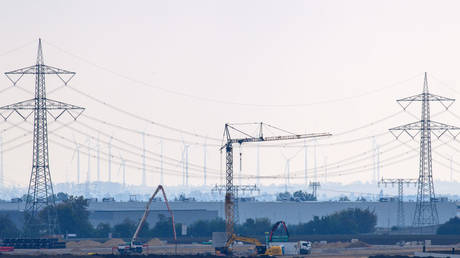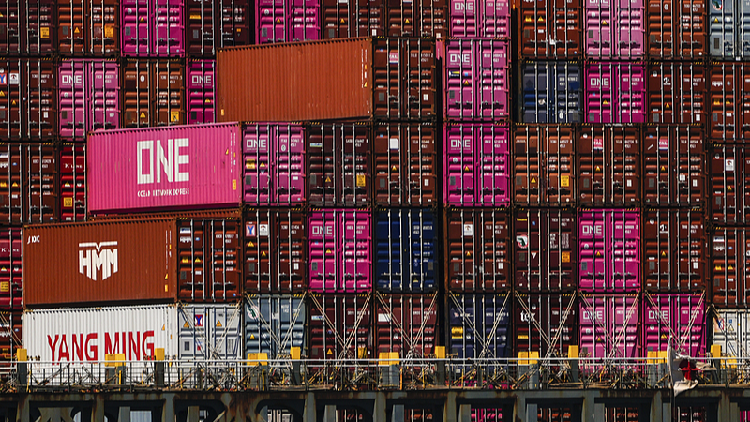EU's biggest economy at risk of new recession, reports say
According to a report by the Sueddeutsche Zeitung, Germany's Economy Ministry is set to lower its already modest growth forecast.. source:TROIB RTS

The German economy is expected to shrink for the second consecutive year. Following a significant rise in energy prices due to the country’s decision to stop relying on Russian gas, Germany was the only major developed economy to experience contraction last year.
The Economy Ministry is projected to reduce its 2024 growth forecast from 0.3% to a contraction of 0.2%. This adjustment follows a 0.3% decline last year, indicating that Germany is facing its second year of recession.
Looking ahead, the ministry plans to project a growth rate of 1.1% for 2025 and 1.6% for 2026, with Economy Minister Robert Habeck hoping that a combination of tax cuts and energy subsidies will invigorate production and consumer spending.
However, several German economic institutes remain skeptical about the effectiveness of these measures. A report from a consortium of six prominent think tanks last month predicted a more modest growth rate of 0.8% for 2025 and 1.3% for 2026.
Energy prices surged in Germany following the start of the Ukraine conflict in 2022, when Berlin halted imports of Russian oil and gas. Prior to the crisis, Germany sourced 55% of its natural gas imports from Russia, and the country was already transitioning away from nuclear power in favor of renewables. This transition, combined with the loss of Russian imports, has led to skyrocketing energy prices and increased manufacturing costs.
As a result of these energy challenges, coupled with intensified competition from China, Germany’s manufacturing sector has been compelled to reduce costs and downsize. Volkswagen, for instance, recently announced potential closures of two factories—the first such closures in the company’s 90-year history. Government statistics indicate that Germany’s industrial output declined by 5.3% between July 2023 and July 2024, with a corresponding plummet in orders for German-made goods.
The failure to safeguard the energy sector against price spikes has prompted the Berlin-based Forum for a New Economy to declare the 2020s a likely “lost decade,” labeling the current economic crisis “the worst economic downturn in the country since World War II.”
This economic turmoil has also contributed to Chancellor Olaf Scholz's unprecedented unpopularity. An ARD-DeutschlandTREND survey conducted last month revealed that only 18% of Germans are satisfied with Scholz’s performance, marking the lowest level ever recorded for a German leader. In comparison, former Chancellor Angela Merkel's lowest rating was 40%, while Gerhard Schroeder’s dipped to 24%.
Allen M Lee contributed to this report for TROIB News
Find more stories on Business, Economy and Finance in TROIB business












